‘Green Book’ is the kind of rare, disarming film that is at once relevant and piercing, yet makes sure that you have a bloody good time watching it, making up for a slight lack in cinematic craft with a rich, pounding heart that is bound to leave yours full. That is not to take away, for one second, the nuance in the writing department and how deftly Farrelly directs the material with a deliberate light touch, lending the film much of its overall feel good vibe.
We in the critical circles have been accustomed to rave about directorial styles, statements, hard-hitting imagery, and cinematographic signatures in a way that we often forget that sometimes the simplest tales have the most to tell. Simplistic storytelling, as I like to call it, and have already in a number of my previous articles. ‘Green Book’ is a winning example of that, and while it models itself as a breezy comedy for the most part, it is an account that has something worthwhile to say, and one that you want to hear.
The themes ‘Green Book’ encompasses don’t merely touch upon friendship, family, racism, acceptance, and identity, but all this served with a generous dose of good hearty humour is something that is bound to light up a myriad evening. If you are here, and have seen the film, there should be little reason for you to not take pleasure in my raving. The feel good movie of the year, something about ‘Green Book’ just fits; something distinct, or on the contrary, everything. The 60s are delightfully brought to life and you genuinely feel drawn to the authenticity of the setting.
As much as I acknowledge the script and the writing and the overcoming simplicity in treatment, I also acknowledge that the film enormously benefits from the chemistry of its mismatched leads: Viggo Mortensen and Mahershala Ali, both stellar performers in their own right, but together, they are the kind of potent combination you didn’t know you needed, until you see them weave the magic of opposites on screen.
One is feisty, full of zing and motor mouthed; the other is remarkably composed, watchful of his words, actions and the very walk he walks. Under normal circumstances, their combination would spark fireworks, and it does on many occasions which are for instance, also the funniest bits of the film, but in the world Farrelly creates, the two are pitted against each other as affably watching each other’s backs despite their visible differences. The two are as far apart as they could be, and yet, at the core of the film lies the delicate friendship two unlikely companions form over a trip lasting two months.
Green Book Plot: Is it Based on a True Story?
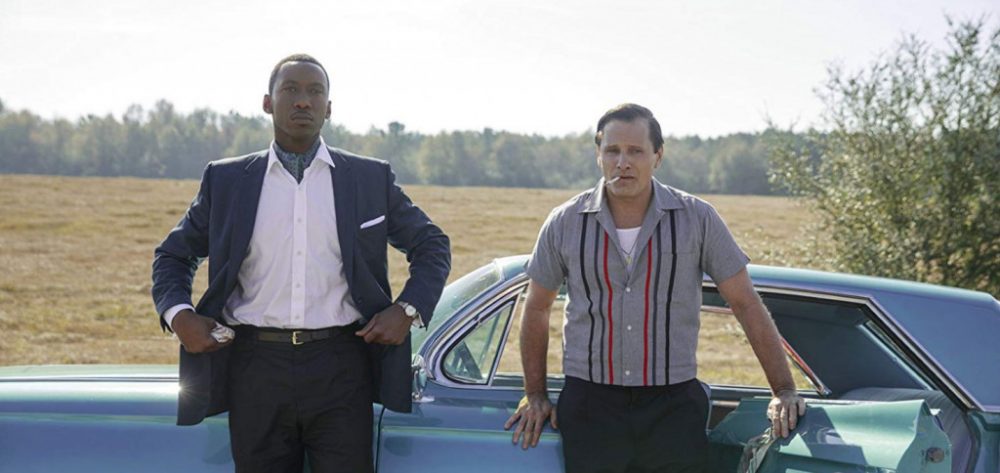
The film is based on a true story set in the racism dictated 1960s America, and follows our protagonists, two men from polar opposite walks of life, taking a tour down into the deep South where racism didn’t merely dictate a way of life for people, but hateful practices against people of colour were commonplace, to an extent of being considered within the realm of normalcy. The notoriety of the era and region with respect to racist and hateful attitudes towards African-Americans is quite well-known, so more on that later. For now, we focus on what brings these two highly unlikely men together.
Tony ‘Lip’ Vallelonga, played with unsurprising sincerity and an unassuming charm by Viggo Mortensen, is an Italian American staying in New York, working as a bouncer for a bar that is presumably closed down for renovations, following an amusing opening act, rendering Tony jobless and on the lookout. He is shown as somebody who is quick to establish high links in hopes that they prove useful later, not afraid to put his street smart tricks on display if the occasion calls. feisty with the fist if need be, but always likeable and charming enough to have your attention when he is on screen, and your heart.
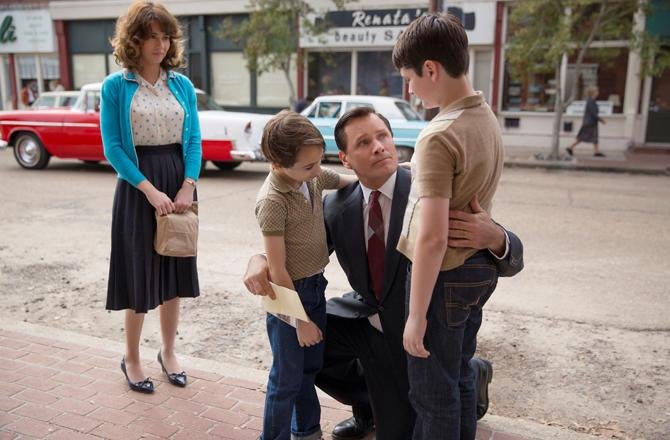
Mortensen imbues the character with a kind of good natured everyman vibe that makes it hard not to resonate with the regular movie goer. His scenes with his family are amiably warm, and really reflect a way of life and living with family, relatives and neighbours now gone-by. What is also temporally evident is that despite more accepting attitudes for the marginalised up north, and in the Bronx where Tony lived, racism was alive and rampant, visible from the one scene wherein Tony throws glasses used by his black domestic helpers in the dustbin, while his wife retrieves and restores them.
We also see how the older members of Tony’s family are casually dismissive of the helpers, depicting nothing but a deeply ingrained way of life and thinking. In that, the film effectively portrays, through well written bits and parts, how segregated and intolerant the sociological landscape of the Americas was during that time, and not just against blacks or people of colour, but also against any non-Americans.
Following this, Tony is brought in touch with a world renowned pianist, Doctor Donald Shirley, part of the famous Don Shirley Trio, for driving Dr. Shirley through the deep South for his 8 week long concert tour. Dr. Shirley explains he is on the look out for a man who is also able to handle any trouble that may arise, given the reputation of the region. Tony observes that Don Shirley lived a life of extraordinary opulence, collecting artefacts and aristocratic mementos, himself dressed in an ornamented robe, but seemed to be in a state of reclusive living. Already apprehensive of working for a black man, Tony passes on the offer hearing that the job would also expect him to be Don’s personal valet, even fetching his clothes and shining his boots occasionally, to which he vehemently opposes.
Later in a polite call, Dr. Shirley confirms Tony’s appointment on his terms based on strong recommendations from contacts of the latter. The two are touted to begin the journey starting from the Midwest, down to the South, to return on the eve of Christmas so that Tony can be with his family. On the day of their departure, Tony is handed over a copy of ‘The Negro Motorist Green Book’ to guide the two regarding Dr. Shirley’s boarding and lodging in the South. The tour begins, and the two men naturally resent each other and their methods of living: Tony for being expected and asked to act in a more refined and socially acceptable manner, and Don for being too upright and constrained, contrary to his free spirited fellow traveller.
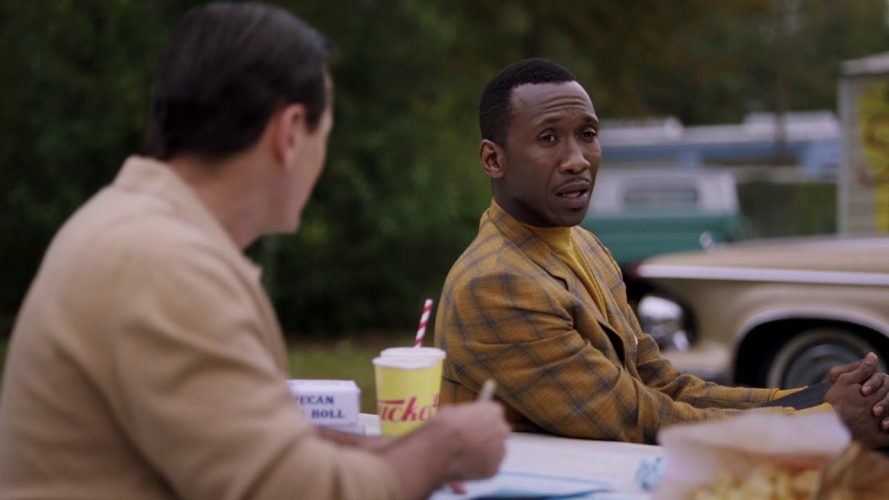
However, as road movies or travel movies with an unlikely group of protagonists go, the two start warming up to each other and their methods of living as the journey progresses. Tony grows deeply appreciative of Dr. Shirley’s piano skills, while increasingly resenting the hypocrisy of white patrons who paid to listen to him play, but would not treat him as equal when off the stage. He grows increasingly interested in Don’s personal life and story and delves deeper into what made him the way he was, why he chose to tour in the deep South and why he continued to withstand the racist and discriminatory behaviour of his white hosts. He even briefly enquires about his family, including his now estranged brother and divorced wife.
On the other hand, Dr. Shirley begins warming up to the simpleton ways of Tony and realising how Tony was quite easily, a happy man. On one occasion, he even helps Tony write letters to his wife, adding much needed grammatical flair and heart into the letters that were earlier mere descriptions of Tony’s day, including bits from his breakfast and how he dried his socks on the television that day! As a counter, look out for a warm hearted exchange between the two regarding a Kentucky’s Fried Chicken take away that is bound to leave you with a beaming smile between your ears, ending in uproarious laughter. These are two contradicting character sketches done right.
One night, Dr. Shirley wanders into a bar for a drink, where he is beaten up by a group of racists and white supremacists, who threaten his life with a pocket knife. Tony reaches in time to intervene in the tussle, and imitates to pull out a gun to stop the fight. After making it out of there, he strictly instructs Don not to go out on his own for the remainder of the tour. The duo find their way through ‘coloured only’ motels and restaurants safe for Dr. Shirley, traversing an increasingly race intolerant mainland.
Treated unjustly on many occasions by his own hosts and the people he encounters when not performing, Dr. Shirley is at the head of a number of harrowing experiences including not being allowed to use the same toilet as white guests and not being allowed to try a suit in a store. On a particular occasion, he is also caught in a same sex encounter with a man, being humiliated and tied up in a police station, with the cops mocking him. Tony rescues him by bribing the cops, but his act is discouraged by Dr. Shirley, considering that Tony had rewarded his mistreatment at their hands.
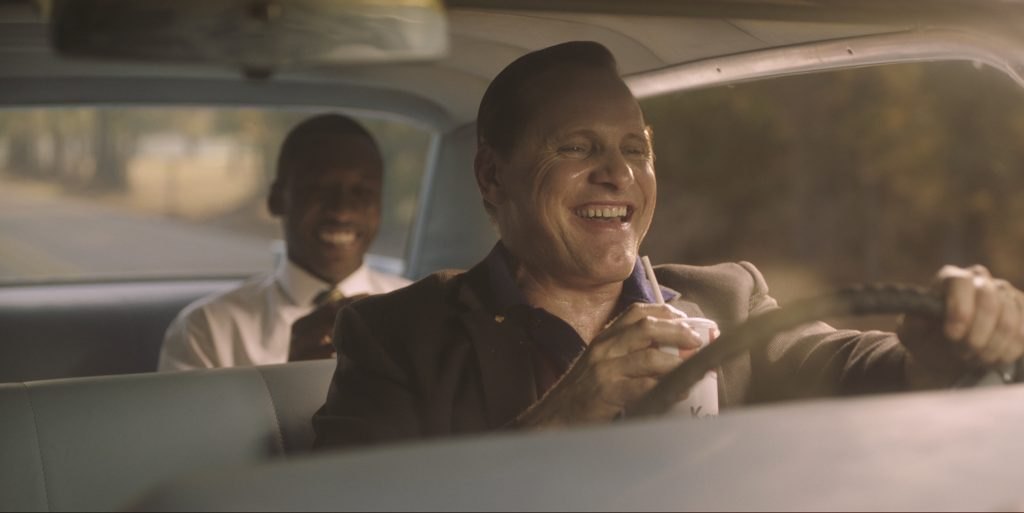
The series of misfortunes continues when they are pulled over for travelling late in a sundown town. Perturbed by a white man driving for a black man, they insult Tony and his ethnicity in their line of questioning, who then assaults one of the officers in retaliation. Him and Dr. Shirley are placed in lockup, wherein the latter demands his phone call, which is awarded to him by the officers, resentfully so. Dr. Shirley is able to contact the Attorney General of the US, who instructs the Governor to have Shirley released immediately.
Tony is amazed and impressed at the Doctor’s contacts within the bureaucracy, while the Doctor himself feels insulted that he had to call in a favour over something so inconsequential. Tony then retorts saying he himself was blacker than Dr. Shirley ever was or will be, having lived in the same neighbourhood for generations altogether, and being the one struggling to put food on the table for his family everyday. At this point, Shirley breaks down in what is a stellar display of acting prowess by Mahershala Ali, lamenting his struggle of identity as a black man too rich and successful to be accepted as one with the black community, and racially rejected by the white community.
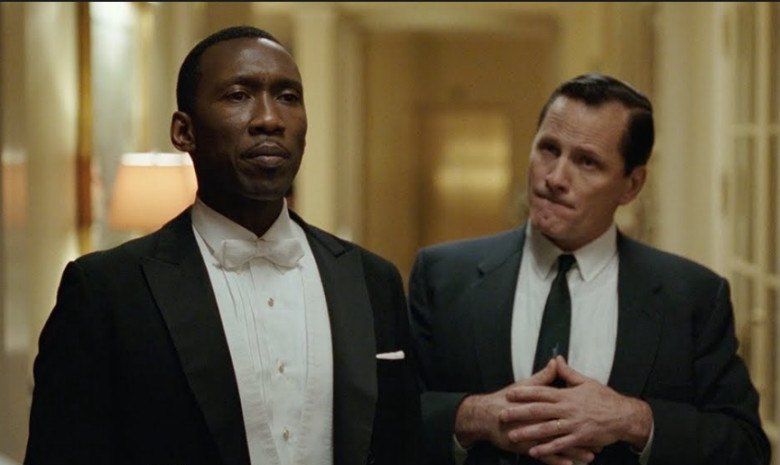
In the last leg of their tour, Dr. Shirley and Tony arrive in Birmingham, Alabama, where they are momentously greeted, but Don is guided to a supplies closet for getting ready, which he accepts despite visible protests from Tony. He is also later denied entry into the ‘only whites’ dining hall of the hotel, at which point he decides not to back off and responds in denial, threatening to walk away from performing.
Following a verbal disagreement, the two head to a predominantly black club down the road, where Don is easily able to win over the audience. Having won the night, the duo head back North to make it in time for Christmas eve, battling a snowstorm and bad weather along the way. They are also stopped along the way by a cop, only to inform them of a flat tire, eventually making it in time to Tony’s place, when Tony invites Dr. Shirley to his place for dinner. He initially resents, but later heads over to Tony’s place for Christmas dinner, where Tony’s entire family is gathered.
Following a brief moment of silence, he is welcomed to the table, while Tony’s wife thanks him for helping Tony with the letters, revealing that she knew all along. The film ends with a montage showcasing the original Dr. Shirley and Tony Vallelonga, and celebrating their friendship.
Racism
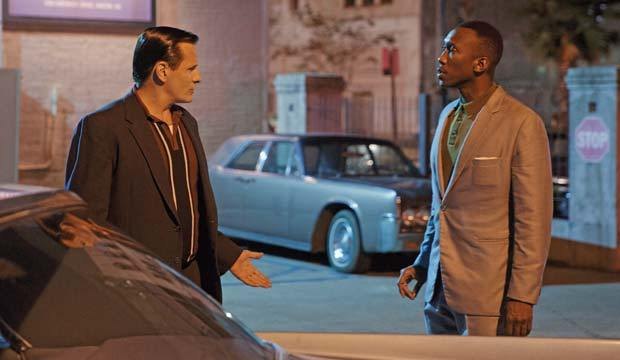
One of the themes that unmistakably runs through the entire narrative, is Racism. A spiteful history that is still somehow able to find its way to our present. It was heartening to see 2018 producing films after films tackling the issue of racism, including ‘BlackKklansman’, ‘If Beale Street Could Talk’, and ‘Green Book’, but all of them did so in a historical context. Within that purview, the racism rampant in the America of the 60s and 70s, more than eight decades after the abolition of slavery, as something that is inbuilt within the very behavioral system of people and still continuing well into the present day is encompassed in a subtle yet perturbing manner in ‘Green Book’.
Everything that Dr. Shirley faces as a result of his race: being denied entry to several places including the dining hall of the hotel he is supposed to perform at in the end, not being allowed to try out a suit in person at a store, being assigned a separate, ragged toilet for use contrary to the regular ones reserved for white guests only, and being unfairly treated at the hands of the law, denied even basic rights at times, are all reminiscent of a deplorable history that might have been left behind but is still resonant today. The film does a good job at social commentary without going too deep into the issues — for better or for worse.
Don Shirley scoffs at the hypocrisy and sycophancy of his white hosts, lamenting that the very people who invited him to play and paid to see his performance wouldn’t treat him as his equal outside the performance arena, yet would cheer at the end of his piece, claiming it to be “culture”. This one piece of dialogue should with relative ease highlight the sycophantic nature of the aristocratic classes in general too. However, the film takes a very different route to tackle this issue, than say ‘12 Years a Slave’ did, still displaying a warm light to make you believe in the goodness of people. As aptly remarked by Shirley’s comrade, Oleg, when asked by Tony as to why Dr. Shirley performed for those people despite the kind of narrow minded bigotry he had to put up with, “Genius is not enough. It takes courage to change people’s hearts.”
The Actual Green Book
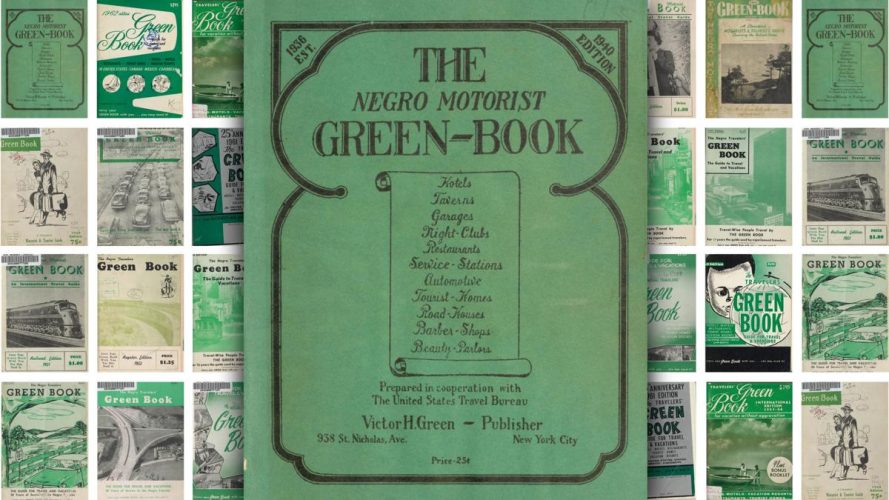
The film draws its name and much of the context from an actual yearly travel guide book for African American travelers and road-trippers for safe travel around most parts of America, including and especially the deep South, called ‘The Negro Motorist Green Book’, written by Victor Hugo Green from 1936 to 1966, specifically listing relatively black friendly neighbourhoods, hotels, motels, restaurants, joints and other means of accommodation and boarding and lodging, safe for travellers of colour, promising a “vacation without aggravation”. A version of the book is also handed over to Tony at the beginning of his and Dr. Shirley’s trip by Don’s studio executives.
The Struggle for an Identity
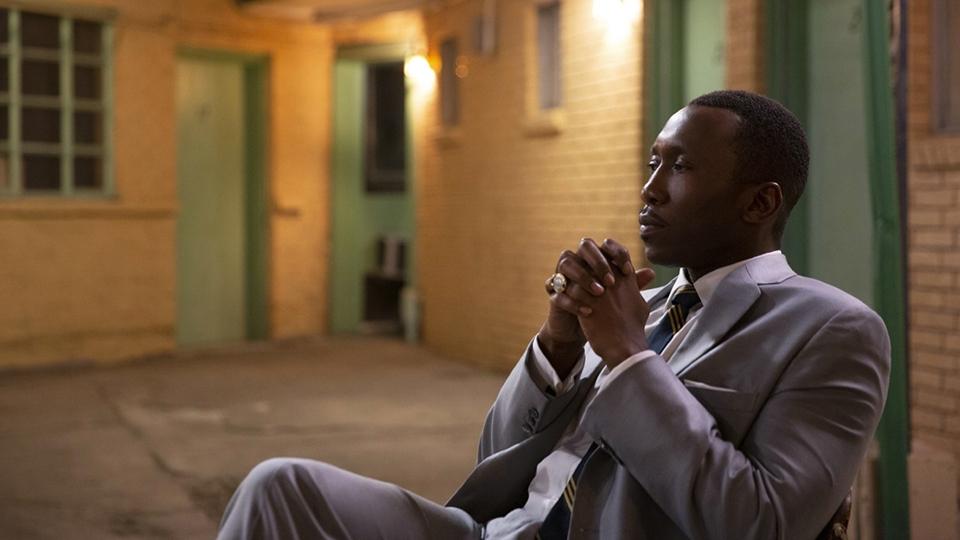
Among the many repercussions that intolerant attitudes may have towards an individual, the mental ones are seemingly the most deep seated ones. Despite Dr. Shirley being repeatedly let down throughout the film, the scene that left the deepest impact on me, in what was a stellar display of some incredible acting by Mahershala Ali, was when Dr. Shirley breaks down upon being confronted by Tony, who claims that Don’s aristocratic lifestyle and upbringing had kept him away from the ways of his own people, and in many ways, Tony himself was ‘blacker’ than Dr. Shirley was, having lived the same kind of hustler life sans the incessant discrimination.
At this point, Dr. Shirley breaks down, confessing that his ways of life had marginalised him from his own community, and him being a successful black pianist obviously did not sit well with his white counterpart, leaving him to grieve alone, isolated in the castle he had built. His isolation had transformed him into a cold, contained person too weary of his surroundings and ways of life. It is all sorts of heartbreaking to see a visibly broken Shirley say this at his breaking point.
“If I’m not Black enough, and if I’m not White enough, and if I’m not man enough, then tell me Tony, what am I?!”
At the same time, I do consider this a delirious victory in character writing, something that not only immediately empathises one to Dr. Shirley’s character, even over Tony for a brief period, but also asks you to begrudgingly implore yourself. What’s even more praiseworthy is that the scene and the underlying conflict quickly dissipates without diluting its impact, while our protagonists are back at their signature exchanges in the next scene.
Final Word
The controversies, historical inaccuracies and even the Golden Globe win notwithstanding, ‘Green Book’ is easily the most charmingly self aware movie of the year, one that is not to be missed. The movie enormously benefits from the warmth and efficacy of its personal, socially responsible and even funny bits, and Farrelly makes sure that the proceedings are almost always on the lighter side of things. ‘Green Book’ will restore your faith in the power of worthy stories told with conviction, and while you journey with its ever endearing protagonists drawing immensely pleasurable performances from two remarkable actors, it will make sure that you are nothing but all smiles by the time the end credits roll.
Read More in Explainers: Roma | A Star is Born

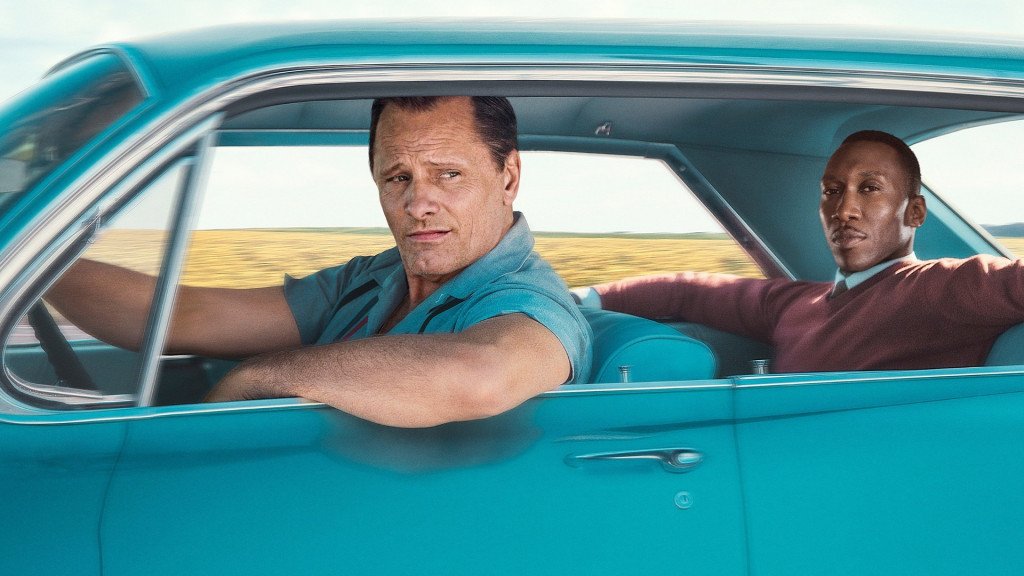
You must be logged in to post a comment.